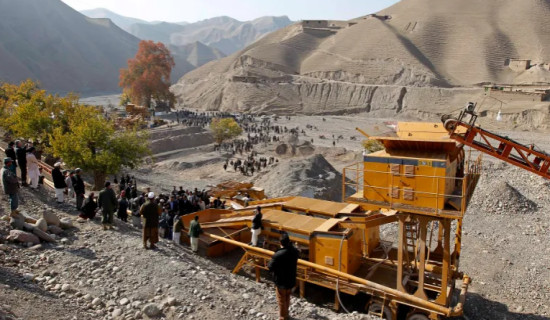- Monday, 16 February 2026
Mediators Assist Senior Citizens
Almost all countries in the world are facing the problems of the big demographic transition. This demographic transition poses challenges to the existing social and economic systems of the countries. Between 2015 and 2050, the proportion of the world's population over 60 years will nearly double from 12 per cent to 22 per cent. Consistent to the global trend, the population of Nepal is ageing fast and the proportion of elder population above sixty years of age comprises around twelve per cent of the total population. An ageing population is more or less a passive and dependent population. It increases the demand for health and many other caring services.
Nepal is not the welfare state where citizens – young and adults – enjoy state support, services and benefits of all kinds taking most of material burden away from the family. The care and protection of elderly population has been a matter of family obligations. Our tradition requires that as parents are solely responsible for rearing and ensuring affectionate and healthy upbringing of their children, so should the adult children do in their turn to provide all care, comfort using all resources for their ageing parents. The obligations of the offspring, especially son, towards their parents have been prescribed in many religious books and scriptures as patrilineal legatee and successor.
Values and norms
However, situations have changed today. The values and norms that governed the family ties and relationships in the past are no longer valued and respected today. The adult children in most cases today do not afford to stay with their parents and take care of them in person. Both in the urban and rural areas of Nepal, parents are either abandoned or made to fend off for themselves back home as their children tend to migrate in horde to overseas for want of gainful job opportunities. For parents their old age becomes a kind of physically and emotionally racking experience because their family members are not beside them when they need compassion, care and protection.
Moreover, a very ominous trend that challenges our family values has been that the close knit family ties and relationships that used to characterize the parent-child bonding is going on the wane. In some cases, it is also found that the adult male child tend to neglect and abuse their parents, exert pressure upon them to exact the share of property as coparcener. They are least bothered to take cognizance of their obligations towards their parents. However, these unruly and deviant examples are not many and hence said to be an exception.
However, when parents age, lifelong family baggage can spill open. Siblings might find themselves in dispute over who carries most of the caregiving burden, or disagreeing with their parents and each other about which courses of action are best. Old sibling rivalries and feelings of envy and resentment may come up.These type of disputes can raise between siblings, children and parents, and even spouse to spouse. Unresolved conflicts can blossom anew during a health crisis – complicating any attempts to understand how the older adult wants (or would want) to proceed.
Death and dying are as much a part of the life cycle as birth and living. Identifying how an individual wants to spend their final years and communicating that message to family and friends is an important task. In such case support of family mediator would be needed. Siblings with strong and opposing views can benefit from the objective family negotiation and mediation offered by an experienced mediator. A mediator can work on behalf of the whole family. He or she will help the family have constructive conversations about their elderly parent’s needs, create a plan that addresses them, and ensure that it’s put into action.
A mediator can work as an objective third-party to help resolve some of those conflicts and move the discussion forward. Mediators should have training or experience in both mediation and gerontology to be able to properly assist families dealing with this type of conflict. Mediators are also very effective at facilitating family conversations, before a crisis hits. Once decisions have been made and put into writing – families have a tool to use when a crisis hits. That tool can be adjusted as life situations change, and will mitigate the stress and trauma of the crisis.
Family facilitation
According to the experts on elder care mediation, one of the first steps to setting up a successful family facilitation is to identify all the parties who will be involved. The discussion should focus on what is important to the adult(s), how they have lived their lives and how they picture living their remaining days. Gentle probing into relationship issues between them and children, and between siblings should be used to help understand family dynamics. Based on these discussions, the mediator needs to connect with each person involved and have similar discussions with them identifying their concerns, conflicts and comfort levels. The mediator will help identify which are most pressing, which are easiest to solve, which will take more concerted time and adjust each session to address a few smaller issues and one bigger issue.
In Nepal, the constitution has guaranteed the right of senior citizens while law enacted relating to right of senior citizens are also in the statute book. Mechanism like judicial committee exist to help resolve the family disputes at the local level. However, local capacity is lacking in this respect. It is time to conduct training for mediators at the local level by incorporating subjects like gerontology and elder care mediation which can help families to resolve their conflicts that arise in regard to the care and maintenance of the senior citizens.
(The author is presently associated with Policy Research Institute (PRI) as a senior research fellow. rijalmukti@gmail.com)

















